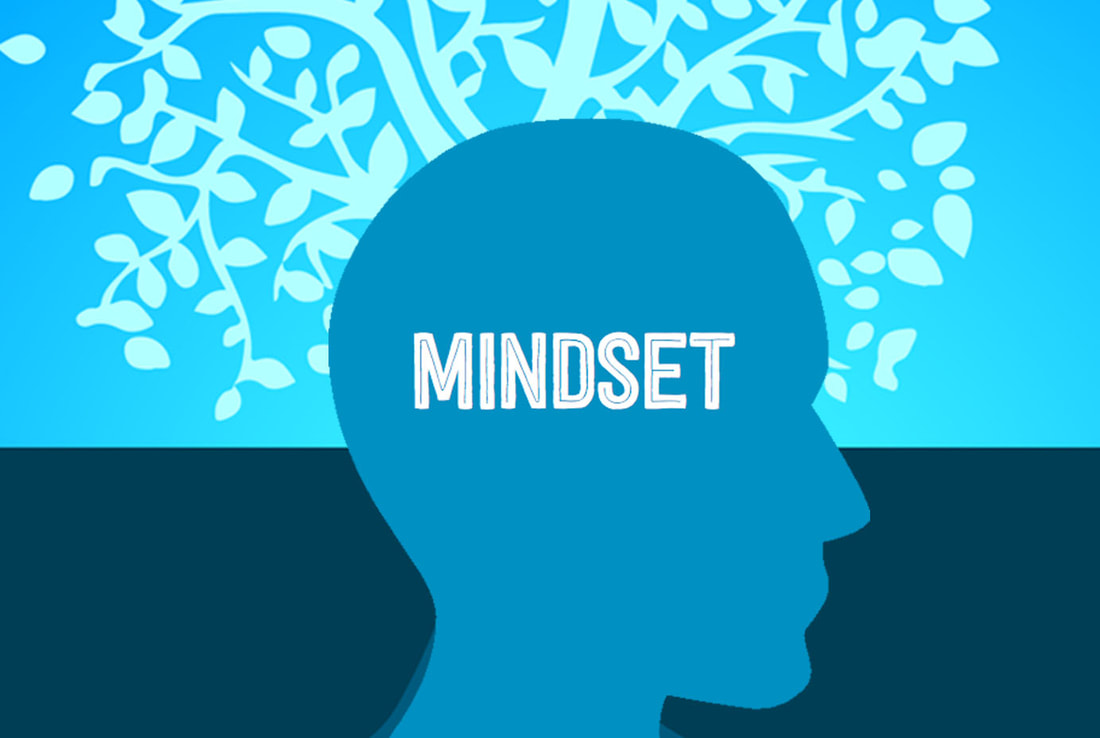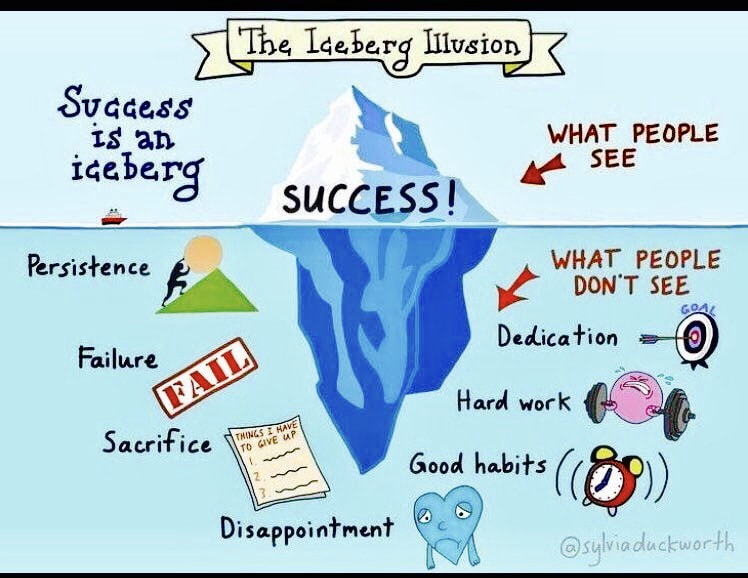What is a mindset?
|
Your mindset is the beliefs and ways of thinking that determine your behaviour, outlook on life and attitude toward everything around you. In essence, your mindset defines who you are and how you deal with the situations you face in life.
When you approach a new learning opportunity, your mindset will determine how you handle it. Will you jump at the chance to tackle an exciting new challenge or will you get trapped in a cycle of avoidance and negativity? If you want to be successful and learn new things, it is important to develop a growth mindset. |
Do you believe that changing the way you think about learning will be too difficult? Check out this video that will remind you that you have already overcome many challenges in life. If you can learn to walk, talk, ride a bike and tie a shoe, you can definitely develop a growth mindset!
What are the benefits of a growth mindset?
|
When you face a new learning situation, you can approach it in one of two ways: with a fixed mindset or a growth mindset. Your mindset has a huge impact on how successful you will be in both the short-term and the long-term. Those with a fixed mindset believe that intelligence and skills are something you are born with, so they avoid challenges, put in minimal effort, give up easily and generally end up exactly where they started. People with a growth mindset recognize that we can build our intelligence and grow our skills with hard work and persistence. Because they feel this way, they are not afraid to tackle a challenging situation. Research shows that those with a growth mindset learn new things faster and are more successful when trying to learn something new. From school to athletics, a growth mindset is key to everything in life.
|
Developing a growth mindset doesn’t mean you will always be successful. Failure is as much a part of growth as success. A growth mindset is about how you handle the difficulties that come with learning something new. Reflect on what went wrong, ask for help, try a new strategy, but don’t give up. If you have your goal in mind and you keep track of your progress, you will see improvement over time with consistent effort and smart strategies.
People aren’t born successful. They work hard to get where they want to be, and most of them made a lot of mistakes along the way. Developing a growth mindset is the first step on your own path to success through consistent effort, positivity, improved habits and hard work.
A growth mindset is the key to success because how we think about learning and our own potential is one of the biggest determiners of how successful we will be. If you believe in the possibility of personal growth and improvement, you can bounce back from failure, power through difficulties and ultimately reach your goals.
People aren’t born successful. They work hard to get where they want to be, and most of them made a lot of mistakes along the way. Developing a growth mindset is the first step on your own path to success through consistent effort, positivity, improved habits and hard work.
A growth mindset is the key to success because how we think about learning and our own potential is one of the biggest determiners of how successful we will be. If you believe in the possibility of personal growth and improvement, you can bounce back from failure, power through difficulties and ultimately reach your goals.
Is it really possible to change your intelligence?
It's one thing to believe you can grow your brain, it's another thing to actually change it. Some people reject the idea of a growth mindset because they think we are born with the brain and intelligence that we will always have throughout our lives, but those people don't really know how our brains work. Watch the following video to learn more about the concept of neuroplasticity (a fancy way of saying that our brains are changing all the time) and how our brains really do grow and change as we learn new things.
How do you start to develop a growth mindset?
- Recognize that your intelligence and talents are not fixed at birth. You can change, grow and learn new things throughout your life.
- View challenges as learning opportunities and not something to be avoided.
- Train the voice inside your head to focus on the actions you can take to keep growing, not the traits that you may or may not possess. Stay positive.
- Consistently give your best effort on all learning tasks.
- Reflect on both your successes and failures to identify strategies that work well for you and areas for improvement.
- Be open to constructive criticism. Recognize that it can help you improve. Don’t see it as a personal attack.
- Look for the value in everything you are learning—even when it seems boring or too easy.
- Go the extra mile and look for opportunities to learn more or to get extra practice.
- Set goals for yourself and keep track of your progress.


